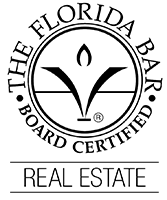How To Appoint An Inventory Attorney For A Deceased Florida Lawyer
“Each member of the bar who practices law in Florida shall designate another member of The Florida Bar who has agreed to serve as inventory attorney under this rule.” Rule 1-3.8, Rules Regulating the Florida Bar, effective 1/1/06.
What do you do with the client files of a deceased lawyer? If the lawyer has partners, they will take over the files. But about half the lawyers in Florida are sole practitioners, so what happens to their files?
This is important because client files contain confidential attorney-client privileged and work product privileged information. Disclosure of such information to someone not employed by the deceased lawyer’s P.A. could result in loss of the privilege and liability to the decedent’s estate. However, those files do not belong to the clients, so they cannot be “returned” to the clients. Under Florida law, a lawyer’s files relating to a client matter belong to the lawyer. Therefore, those physical files are assets of the probate estate. This makes it necessary to appoint a lawyer to supervise dealing with those files.
Beginning January 1, 2006, every Florida lawyer must designate an inventory attorney to deal with the lawyer’s files in case of death, disability or disbarment. Rule 1-3.8 of the Rules Regulating the Florida Bar now require such designation. However, designation differs from appointment. The Rule still requires that the inventory attorney be appointed by the circuit court. Therefore, the designation is really an advance designation (similar in concept to an advance directive for health care).
The Rule does not provide much guidance as to the forms and procedure that the probate lawyer handling the deceased lawyer’s estate should follow. The author submits that the following procedure and the appendix of forms (Designation, Petition, Consent, and Order) will be sufficient to comply with the Rule.
Here is one way to ethically deal with the deceased Florida sole practitioner lawyer’s client files:
- Designate Inventory Attorney. The attorney should, while still living, designate an inventory attorney as required by the new rule amendment. A form of designation appears in Appendix “A”. The rule does not specify whether the designation must be filed with The Florida Bar, the Supreme Court, or otherwise, so until further guidance is provided, it is suggested that both the designating attorney and named inventory attorney keep duplicate signed originals of the Designation in their files.
- Appoint PR. The first step after the lawyer’s death is to open the probate administration by filing the will and petition for administration and having the probate court appoint the personal representative (PR) named in the will. For purposes of this article, we assume that the PR is not a lawyer; even if the PR is a lawyer, it would be wise to proceed with the next step to make it clear that the PR is acting in dual roles.
- Appoint Inventory Attorney. The PR then immediately petitions the probate court to appoint an inventory attorney to deal with the deceased lawyer’s clients and the IOTA trust account and to review the attorney’s files relating to client matters. The inventory attorney does not become the attorney for the clients or for the estate, but protects the interests of both by separating the deceased lawyer’s client matters from the deceased lawyer’s business matters. A petition, consent and order for appointment of inventory attorney are set forth in the Appendix.
- Change from P.A. to Inc. If the deceased lawyer practiced as a P.A., the P.A. must convert to a regular business corporation in order to continue the business (non-legal-advice-rendering) part of the practice and wind it up. The PR does this by first holding a shareholder meeting of the P.A. at which the PR votes the shares to (a) amend the articles of incorporation to remove the practice of law from the purposes of the corporation, (b) amend the articles to change the corporate name from P.A. to Inc., (c) amend the bylaws to remove the requirement of being a lawyer from the provisions for shareholders, directors and officers, and (d) elect the PR to be sole director. The PR then holds a board of directors meeting of the P.A. at which the PR as sole director (a) approves the amendments to articles and bylaws, (b) elects the PR to be president, secretary and treasurer, and (c) approves new bank signature account cards naming the PR as sole signer on the non-IOTA bank account. The articles of amendment are then filed with the Florida Division of Corporations.
The sample forms in the Appendix cite the specific Florida Statutes, cases, and Rules Regulating The Florida Bar which are the basis for the above procedure. While it may seem complicated, the procedure is intended to protect the deceased lawyer’s clients, estate, beneficiaries and public by providing a means by which the inventory attorney can deal with attorney-client matters while the practice is wound up in the probate estate.
“Each member of the bar who practices law in Florida shall designate another member of The Florida Bar who has agreed to serve as inventory attorney under this rule.” Rule 1-3.8, Rules Regulating the Florida Bar, effective 1/1/06.
What do you do with the client files of a deceased lawyer? If the lawyer has partners, they will take over the files. But about half the lawyers in Florida are sole practitioners, so what happens to their files?
This is important because client files contain confidential attorney-client privileged and work product privileged information. Disclosure of such information to someone not employed by the deceased lawyer’s P.A. could result in loss of the privilege and liability to the decedent’s estate. However, those files do not belong to the clients, so they cannot be “returned” to the clients. Under Florida law, a lawyer’s files relating to a client matter belong to the lawyer. Therefore, those physical files are assets of the probate estate. This makes it necessary to appoint a lawyer to supervise dealing with those files.
Beginning January 1, 2006, every Florida lawyer must designate an inventory attorney to deal with the lawyer’s files in case of death, disability or disbarment. Rule 1-3.8 of the Rules Regulating the Florida Bar now require such designation. However, designation differs from appointment. The Rule still requires that the inventory attorney be appointed by the circuit court. Therefore, the designation is really an advance designation (similar in concept to an advance directive for health care).
The Rule does not provide much guidance as to the forms and procedure that the probate lawyer handling the deceased lawyer’s estate should follow. The author submits that the following procedure and the appendix of forms (Designation, Petition, Consent, and Order) will be sufficient to comply with the Rule.
Here is one way to ethically deal with the deceased Florida sole practitioner lawyer’s client files:
- Designate Inventory Attorney. The attorney should, while still living, designate an inventory attorney as required by the new rule amendment. A form of designation appears in Appendix “A”. The rule does not specify whether the designation must be filed with The Florida Bar, the Supreme Court, or otherwise, so until further guidance is provided, it is suggested that both the designating attorney and named inventory attorney keep duplicate signed originals of the Designation in their files.
- Appoint PR. The first step after the lawyer’s death is to open the probate administration by filing the will and petition for administration and having the probate court appoint the personal representative (PR) named in the will. For purposes of this article, we assume that the PR is not a lawyer; even if the PR is a lawyer, it would be wise to proceed with the next step to make it clear that the PR is acting in dual roles.
- Appoint Inventory Attorney. The PR then immediately petitions the probate court to appoint an inventory attorney to deal with the deceased lawyer’s clients and the IOTA trust account and to review the attorney’s files relating to client matters. The inventory attorney does not become the attorney for the clients or for the estate, but protects the interests of both by separating the deceased lawyer’s client matters from the deceased lawyer’s business matters. A petition, consent and order for appointment of inventory attorney are set forth in the Appendix.
- Change from P.A. to Inc. If the deceased lawyer practiced as a P.A., the P.A. must convert to a regular business corporation in order to continue the business (non-legal-advice-rendering) part of the practice and wind it up. The PR does this by first holding a shareholder meeting of the P.A. at which the PR votes the shares to (a) amend the articles of incorporation to remove the practice of law from the purposes of the corporation, (b) amend the articles to change the corporate name from P.A. to Inc., (c) amend the bylaws to remove the requirement of being a lawyer from the provisions for shareholders, directors and officers, and (d) elect the PR to be sole director. The PR then holds a board of directors meeting of the P.A. at which the PR as sole director (a) approves the amendments to articles and bylaws, (b) elects the PR to be president, secretary and treasurer, and (c) approves new bank signature account cards naming the PR as sole signer on the non-IOTA bank account. The articles of amendment are then filed with the Florida Division of Corporations.
The sample forms in the Appendix cite the specific Florida Statutes, cases, and Rules Regulating The Florida Bar which are the basis for the above procedure. While it may seem complicated, the procedure is intended to protect the deceased lawyer’s clients, estate, beneficiaries and public by providing a means by which the inventory attorney can deal with attorney-client matters while the practice is wound up in the probate estate.
Dealing with a deceased lawyer’s estate is complicated enough. Dealing with client files raises more issues.






